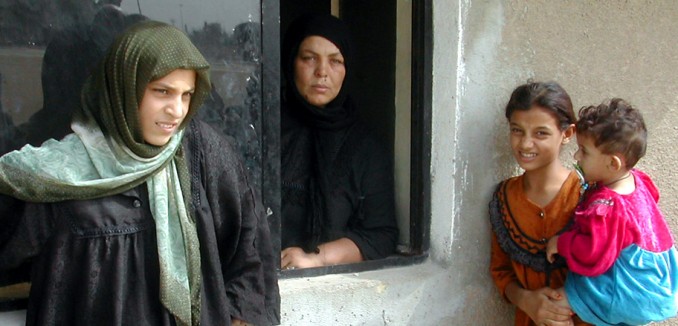Yesterday, I was asked by an editor if I wanted to write about my experience as a woman in the field that I work in for International Women’s Day. I currently act as the executive director of the Human Security Centre, an independent, not-for-profit, foreign policy think tank based in London. Foreign policy is a male-dominated sphere, especially the work that I do in the Middle East.
My first instinct was to accept the offer. “Why not?” I thought. But as my fingers flew over the keyboard of my laptop, I realized that it was a fruitless enterprise. “What are you going to write about?” I thought to myself.
Perhaps about the odd sexist comment here and there, or how I once had to explain to a random sheikh in Abu Dhabi that being able to think and cook are not mutually exclusive. Annoying? Yes. Outrageous? Absolutely. Reason to moan in a national newspaper? Certainly not. And most certainly not while millions of women around the world still live as second-class citizens under truly appalling conditions.
I replied to the editor that, yes, I wanted the 800-words space offered to me, but, no, not for writing about myself. Instead, I suggested a column about the plight of women in the Middle East and other parts of the world, for free, with royalties donated to a women’s charity of my choice.
My offer did not fly. But here I am writing about it anyway, having the opportunity to share with you stories of abuse, torture, and death, but also tales of survival, courage, and resilience.
The witch-hunts in Europe ended hundreds of years ago, but in Saudi Arabia, our so-called ally, women can still have their heads chopped off on charges of “witchcraft and sorcery.” A 2013 UN-sponsored survey revealed that over 99 percent of Egyptian girls and women have experienced sexual harassment in their lifetime. Allegations of adultery get you stoned in Yemen. In the United Arab Emirates, hundreds of rape victims are imprisoned under reprehensible morality laws.
Seeking education should never be an act of bravery, but for millions of girls around the world, it remains exactly that. Last July, three teenage girls in the Afghan city of Herat had acid thrown in their face by unknown assailants on a motorbike. Their only “crime” was going to school. Despite threats to their lives, 3.6 million girls are currently enrolled in school in Afghanistan, compared to less than a million boys and no girls under the Taliban’s crime regime.
19-year-old Saba Qaiser from Pakistan nearly lost her life for falling in love with a man of her own choosing. Her father pointed a gun at her head, pulled the trigger and dumped her body in a nearby river. In her father’s mind, he was restoring the family’s good name, a practice known as “honor killings.” Approximately every 90 minutes, such a killing takes place somewhere in the world. Saba miraculously survived her father’s murderous rage. A Girl in the River, a short documentary based on her story, won an Oscar last month.
Spare a thought for the thousands of women kidnapped, enslaved, tortured, raped, and murdered by religious fascists in Nigeria and Iraq. Hundreds of girls taken by Boko Haram over the years have been killed or are still missing. Hundreds of Yazidi women sold as sex slaves by Islamic State have committed suicide in captivity. Thousands have not yet returned to their families, and many have no families to return to, because their fathers and brothers were executed and their mothers killed for being too old for sex. And yet thousands of resilient and courageous Kurdish and Yazidi female fighters have taken the fight back to their tormentors. Last month, the town of al-Shadadi in northern Syria, where many of the Yazidi women were sold as sex slaves by Islamic State, was liberated by Kurdish forces, including many women. That is poetic justice.
On International Women’s Day we should support and salute the girls and women in the Middle East, and other parts of the world, who risk everything for their basic rights, and we should remember and mourn those who have lost their lives in the process. These women are the true heroines of today’s international womanhood.
You may still think that I am a bad feminist for having missed the opportunity to raise awareness for the challenges faced by a white, privileged, university-educated woman with loving parents and a religion, man, and friends of her choosing. But at least I do not feel like a hypocrite.
Julie Lenarz is the executive director of the Human Security Centre, an independent foreign policy think tank based in London.
[Photo: Wikimedia]




